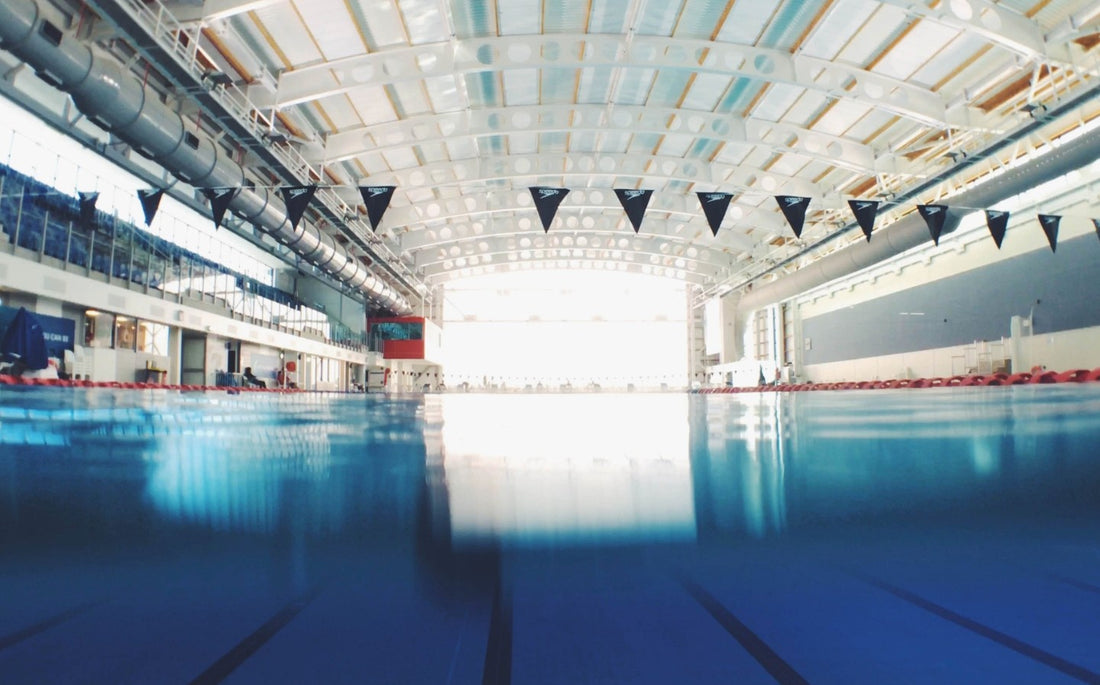

Going the distance: should you be a sprint or distance swimmer?

Swimming for fun is great. It keeps you active and can spice up a repetitive gym routine.
7 million people in the UK swim weekly for a reason!
But if you’re hoping to take your swimming to the next level, you might look to enter the competition scene. But, unfortunately, it’s not as simple as rocking up to a pool and telling a coach ‘hey, I want to swim’. You want to swim what?
Sprinting and distance swimming have a lot of similarities. But they also demand different things. Which you choose will affect your training and approach to the sport.
Often, you’ll find yourself gravitating to one type or the other. Your attitude to swimming will either match the mental game of distance swimming or be more suited to high-energy power sprinting. Based on the balance of fast or slow-twitch muscles in your body, the choice can even be genetic.
Sprinting
Sprinting races are either 50 or 100 metres and their aim is pretty straightforward. You want to finish in the quickest time. Because of this, sprint swimmers need to build up their strength. You want as much power behind your stroke as possible. So for training, you’ll spend less time in the pool and more time in the gym doing strength and conditioning exercises. Being in the pool is essential for mastering your technique. But after this, it’s all about building power.
Unlike longer distances, sprinting isn't about pace. It’s about speed. You go as fast as you can for a short period of time. It’s an anaerobic exercise, so you’ll be increasing your lactic threshold by training. This will improve your body's ability to keep up with the high-intensity of a sprint. Because a race is so quick, sprinting can be less forgiving. One mishap when kicking off, or one badly timed turn and the race is ruined. This is why technique is so important for sprint swimmers. You need to be as technically perfect as possible.
Distance
Distance swimming is any distance over 800 metres. Instead of focusing on power, distance swimmers need to work on their endurance. You’re looking for efficiency; being able to maintain the same movements over a long period of time. It’s important your stroke propels you forward as much as possible but uses the least amount of energy. With an inefficient stroke, you’ll be making progress but will end up fatigued after burning through too much energy.
Distance swimming is very much a mental game. As much as it’s about being physically able to keep moving, it’s also about keeping your head in the game. By building your mental endurance, you’ll also be improving your motor and metabolic insurance.
What we mean by this is keeping focused will help your body maintain your repeated movements better and ensure your muscles get a steady supply of fuel to maintain over a longer period of time.You’ll want to focus on one stroke at a time, rather than getting overwhelmed by the distance ahead.
It’s about making sure you’re swimming efficiently and your pacing is consistent.
Want an extra challenge?
Whether you’re a distance swimmer looking for even more of a challenge or a sprinter looking for a change of pace, why not challenge yourself to a 10,000-metre marathon swim? The first mile is always the worst, so once you’ve smashed that, self-belief and a sharp focus will help you cover greater distances. Swimming can be extremely repetitive. So setting yourself a challenge to cover a greater distance can help bring some excitement back into the sport. You can also remove yourself from the comfort of a pool and rise to the challenge of open water swimming.
There are considerations to make when deciding if you want to pursue sprint or distance swimming. While both are a challenging skill to master, they demand different things from swimmers and will need different approaches, both physically and mentally. Are you up to the challenge?
